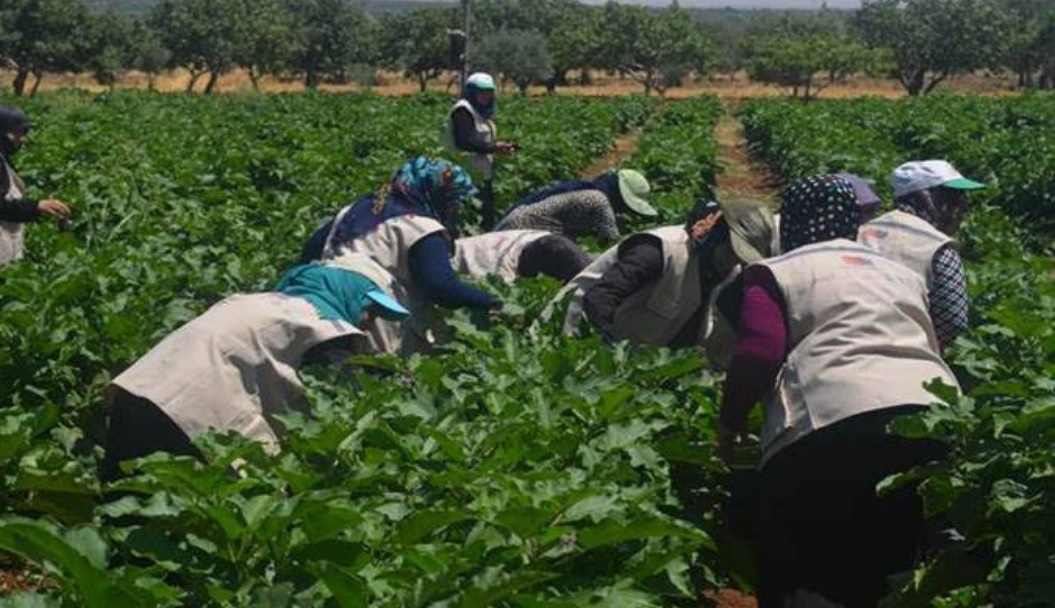FAO trains Turkey-based Syrian refugees to develop skills, enhance employment chances

While there have been several updates on the deportations of Syrians from Turkey to Syria, the Turkish government has totally denied the claims saying that the government has not forcibly deported Syrians in a widespread campaign to crack down on illegal migration in recent weeks.
Amid such claims, Syrian refugees living in Turkey are receiving vocational and labour market skills training with an objective of developing their employability and work opportunities. The training has been organized by the Food and Agriculture Organization of the United Nations in association with Turkey’s Ministry of Agriculture and Forestry. The training is being held for the Syrian refugees and Turkish citizens in the provinces of Adana, Gaziantep, Sanliurfa, Kilis, Bursa, Izmir, Manisa and Mersin.
Most of the Syrian refugees are able to live in host communities with support from families or friends. But given high living costs and refugees’ lack of access to regular income, many of them have had to endure cuts in food consumption, health and education.
Despite the generous efforts of the Turkish Government, both at the central and provincial level, support from the international community is required to ensure decent living conditions, work opportunities and protection to the millions of refugees in Turkey. In this regard, the Food and Agriculture Organization has conducted several assessments to better understand the profile of Syrian refugees in Turkey. These assessments have revealed that the agriculture and food sector provides the main source of income for the majority of the population hosting Syrian refugees, particularly for the vulnerable ones living in Turkey’s rural areas. The results also indicate that Turkey is undergoing a shortage in its skilled labour force and that there is a high demand for skilled and semi-skilled labour.
On the other hand, the trainings include theoretical and on-the-job education regarding food- and agriculture-related topics. Trainees also are receiving crucial complementary knowledge on the Turkish language, labour legislation, employment services and life skills.
“I have learned the techniques of fruit seedlings and got the chance to develop my skills. I feel more confident and self-reliant, as well as I can financially support my family,” a 20-year-old trainee, Hatun Hanım opined.
The monitoring mission to the provinces of Adana, Kilis and Sanlıurfa, officials recently identified challenges, best practices and lessons learned in implementing on-the-job training in Turkey’s food and agriculture sector.
They learned that trainees have been developing their skills out in the field and that several organizations in the private sector are keen to hire them. Being able to learn on the job opens a new opportunity – particularly for Syrians under temporary protection – and helps trainees become qualified and proficient for a wide range of jobs in the food and agriculture sector.
Sheikh Ahaduzzaman, the programme officer at FAO cited that the training could be supported with entrepreneurship programmes for the continuation of employment opportunities and for sustainable income for the project beneficiaries. Thus, FAO plans to continue its support to help ensure the self-reliance of Syrian refugees and host community members.
Also Read: Is Pierre Nkurunziza playing demonic politics amid Burundi’s severe malaria outbreak?
ALSO READ
Israel launches airstrikes targeting Syrian air defense system, state news agency reports
Western states sought to send de-escalation messages to Iran via Turkey, Western diplomat says
Erdogan meets Hamas leader in Turkey, discusses efforts for regional peace
Iraq, Turkey, Qatar, UAE sign preliminary deal to cooperate on Development Road project
Iraq, Turkey to elevate security, economic ties after Erdogan visit










